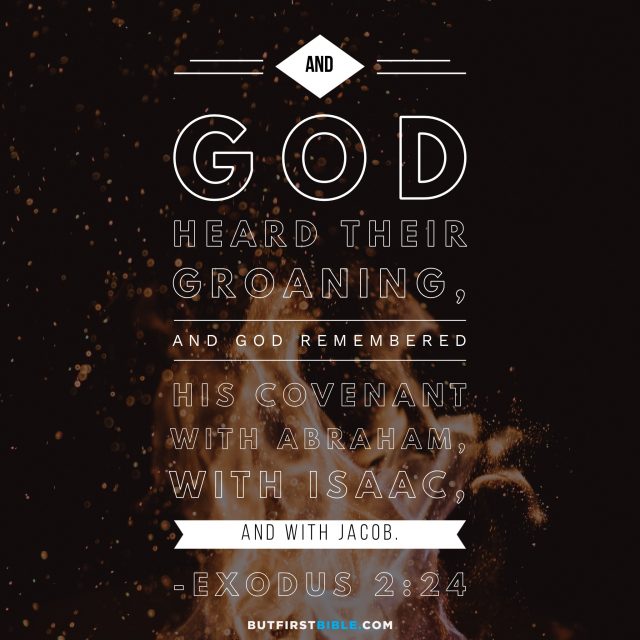
Welcome to the “But first, Bible” daily devotional podcast with Dave Miers.
Today’s readings are Exodus 1-3 and Matthew 15:21-39.
As we begin the book of Exodus, today would be a great time to join in with this reading plan. So if you’ve got friends or family who would benefit from following along with this podcast, encourage them to get started today.
The opening 3 chapters really set the scene by linking us with what has come before in the book of Genesis and introduce us to Moses – the main character that God uses to achieve his plans and purposes in the book of Exodus.
I want you to notice today the clear continuity of the storyline from Genesis to Exodus.
Let me begin with,
[23] During those many days the king of Egypt died, and the people of Israel groaned because of their slavery and cried out for help. Their cry for rescue from slavery came up to God. [24] And God heard their groaning, and God remembered his covenant with Abraham, with Isaac, and with Jacob. [25] God saw the people of Israel—and God knew. (ESV)
The rest of this episode is an excerpt from “Through the Bible Through the Year” by one of my favourite Christian authors, John Stott.
“The book of Exodus opens with a vivid description of the oppression of the Israelites by a new pharaoh (probably Rameses II), who did not know about Joseph. The Egyptians “made their lives bitter with hard labor in brick and mortar and with all kinds of work in the fields” (1:14). Their oppression lasted 430 years. But they cried to God for deliverance, and he remembered his covenant with Abraham, Isaac, and Jacob. Indeed, he was already preparing their deliverer.
As a child Moses narrowly escaped being drowned in the River Nile. Then he was brought up first by his own mother and then by Pharaoh’s daughter. We can only guess the conflict he experienced between the Egyptian and Hebrew cultures. But he never lost either his sense of Hebrew identity or his hot indignation over his people’s sufferings. At some point he made a costly and courageous decision: “By faith Moses, when he had grown up, refused to be known as the son of Pharaoh’s daughter. He chose to be mistreated along with the people of God rather than to enjoy the pleasures of sin for a short time” (Heb. 11:24–25).
“But although his love for his people and his resolve to identify with them were admirable, he was reckless enough to take the law into his own hands. He killed an Egyptian who was beating a Hebrew, and the following day he tried to arbitrate between two fighting Hebrews. His intervention was not appreciated. What he had done had become known, and he had to flee to the land of Midian (the Sinai peninsula) to cool his heels for forty years. He had to learn that God’s will must be done only in God’s way.”
[Excerpt From: John Stott. “Through the Bible Through the Year.”]
Until tomorrow, keep trusting Jesus.
